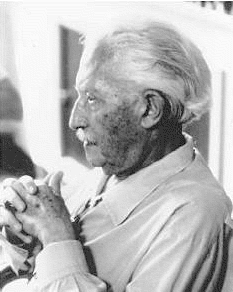Anyway, I'm studying for my Praxis, and I was reading about Erik Erikson, a Neo-Freudian who came up with an eight stage theory of human development. This is it, coppied from Wikipedia an minimally edited by me:
- Hope - Basic Trust vs. Mistrust - Infant stage. Does the child believe its caregivers to be reliable?
- Will - Autonomy vs. Shame and Doubt - Toddler stage. Child needs to learn to explore the world. Bad if the parent is too smothering or completely neglectful.
- Purpose - Initiative vs. Guilt - Kindergarten - Can the child plan or do things on his own, such as dress him or herself. If "guilty" about making his or her own choices, the child will not function well. Guilt is quickly compensated by a sense of accomplishment.
- Competence - Industry vs. Inferiority - Around age 6 to puberty. Child comparing self worth to others (such as in a classroom environment). Child can recognize major disparities in personal abilities relative to other children. Erikson places some emphasis on the teacher, who should ensure that children do not feel inferior.
- Fidelity - Identity vs. Role Confusion - Teenager. Questioning of self. Who am I, how do I fit in? Where am I going in life? Erikson believes that if the parents allow the child to explore, they will conclude their own identity. However, if the parents continually push him/her to conform to their views, the teen will face identity confusion.
- Love (in intimate relationships, work and family) - Intimacy vs. Isolation - Young adulthood. Who do I want to be with or date, what am I going to do with my life? Will I settle down?
- Caring - Generativity vs. Stagnation - the Mid-life crisis. Measure accomplishments/failures. Am I satisfied or not? The need to assist the younger generation. Stagnation is the feeling of not having done anything that is of value to the next generation.
- Wisdom - Ego Integrity vs. Despair - Old age. Some handle death well. Some can be bitter, unhappy, dissatisfied with what they accomplished or failed to accomplish within their life time. They reflect on the past, and either conclude at satisfaction or despair.
Erikson believed that you had to understand and embrace both poles of each stage (ie - Intimacy and Isolation for the 6th stage) for it to come to the final conflict that would resolve the stage for you, at the end of which you would have the proscribed virtue or power.
So I was trying to figure out where I went wrong, and I was thinking about stage 4, thinking about comparing myself to others for self-evaluation. I did that for a really long time. I think that was the primary concern of my teenage years. It became an obsessive-compulsive thing. I have this great memory from the early days of my relationship with Cami when I was constantly trying to measure myself up against Peter, and she finally got tired enough of listening to it that she cracked and said rather sharply that she didn't care and didn't want to hear anymore about Peter. Its a fun irony.
I guess I'm thinking now that I didn't "go" wrong. I just had some conditions that screwed things up, the same as anyone else I guess. I had anxiety-attacks that made me rate myself very low compared to my peers in that 4th stage, and that dragged it out. I think I was going through stage 5 starting at the beginning of my 20's, really because of religious mis-conceptions. I was happy with my identity until then.
I'm banging away at stage 6, through depression and anxiety. I've got isolation down. I guess I just need to figure out intimacy, then I can have a crisis experience. Its tempting to believe in that, but I'm not sure I do. If I'm reading it correctly and Wikipedia isn't lying, according to Erikson I must have had these climactic crisis experiences to conclude each stage, but I don't know if I believe it. I spent years trying to force a crisis that would get me through this Love stage, and I think to a large extent I've stopped believing that there is any one climactic moment. I don't disagree with the idea of moving through the stages, but with the idea that the climaxes come.
I think more realistically that one day I'll look back and see that it happened somewhere out there over a period of time and I'll go, "Huh." And that will be it. It will be less like an hour long tv drama than like geology. Huge, largely indeterminable periods of time that only have just enough in common to call them ages. At least that's the way I'm feeling these days. Kind of sucks then that we're hardwired to look for narrative then, huh?


2 comments:
glad to see you're studying, but it doesn't need to be the occasion of depressing introspection.
--
Dad
Yeah, I'm a fan of 'stages' but I don't think life's experiences (at least mine) can be minimized so neatly. I agree with your idea that the phases don't necessarily climax before you pass to the next. I enjoyed your fun bit of irony.
Post a Comment